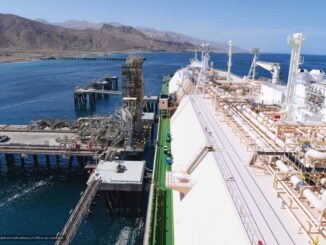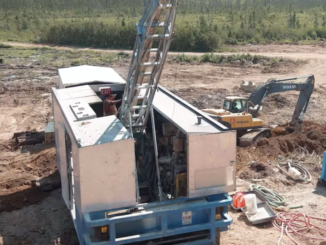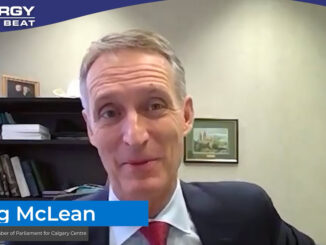
Governments around the world – including Canada – must accelerate sluggish permitting processes for renewable power and carbon-reduction projects in order to meet crucial climate goals, and address an “unresolved crisis” that is delaying the projects that will be key to a low-carbon economy, say executives from energy giant Shell PLC.
Sitting at the side of a recent energy conference in Calgary, Shell International’s vice-president of global business environment, Laszlo Varro, told The Globe and Mail the world’s conventional fossil-fuel-based energy system is ramping down faster than the buildup of a new, greener system.
And a lack of investment is stifling the energy infrastructure flexibility that will be key to building a resilient, secure global energy supply, he said.
The issue has come into sharp focus in Europe, where Russia’s war on Ukraine – and Moscow’s weaponization of its oil and natural gas resources, including reduced gas deliveries via the Nord Stream pipelines – have led to an energy crisis. The resulting skyrocketing prices have the European Commission eyeing unprecedented market intervention, and families and businesses across the continent rethinking how much energy they use as they prepare for a winter of hardships.
Relatively stable gas prices and solid renewables generation have helped stabilize European power prices this month, according to an analysis released Tuesday by data firm Rystad Energy, with average September rates charged to users dropping more than 20 per cent compared with August. But leaks in the Nord Steam pipelines this week will likely escalate gas market volatility.
“Bluntly, people are scared. People are scared that they will not have heating in the winter, and they are scared that they will not be able to pay their heating bills,” Mr. Varro said.
While there’s a strong appetite among investors for clean-energy assets, Mr. Varro says lethargic supply chains and slow movement to train people in the skills needed for a greener economy mean there will be “a considerable period” when natural gas plays a significant role in plugging the energy gap between fossil fuels and renewables.
He also sees an “unresolved crisis in many countries,” where permitting and regulations stymie rapid project development.
Shell Canada president and country chair Susannah Pierce sees two major permitting hurdles here: wind farms and carbon capture and sequestration (CCS) projects.
With a goal to get to net-zero emissions worldwide by 2050, Shell has bet big on both.
Last year, it signed its first renewable energy power purchase agreement in Alberta with BluEarth Renewables Inc. to offtake 100 megawatts of wind capacity from the Hand Hills Wind Project near Drumheller, Alta.
Shell’s Quest CCS facility at its Scotford Upgrader outside Edmonton has captured more than six million tonnes of carbon dioxide since it opened in 2015, and the company is investigating more CCS opportunities globally to try to build 25 million tonnes of carbon capture capacity by 2035.
The regulatory system to permit a new CCS project takes about five years in Canada, Ms. Pierce said, but the technology needs to roll out within with next six years to ramp up decarbonization – leaving little time to actually build the facilities.
“I think it’s really important to make sure that when we think about our climate targets, that we take a look at what pace and scale is the technology available, and how does the regulatory system support that?” she said.
Ms. Pierce thinks wind project permitting, which takes about as long as that of a fossil fuel project, should be accelerated.
“That’s something that we should definitely look at. If we’re serious about decarbonization with these technologies, we need to make sure that the regulatory system supports it,” she said.
The United States has also taken “a very big leap forward” by incentivizing CCS and renewable projects under the recently passed Inflation Reduction Act, which Ms. Pierce said provides Canada with a good opportunity to revisit its levels of investment.
“It just opens up a conversation to say, ‘Okay, if we’re trying to drive these capital investments in this jurisdiction, we need to understand what the rest of the world is doing,’ and that’s across every type of investment we’re trying to make in this country,” she said.



